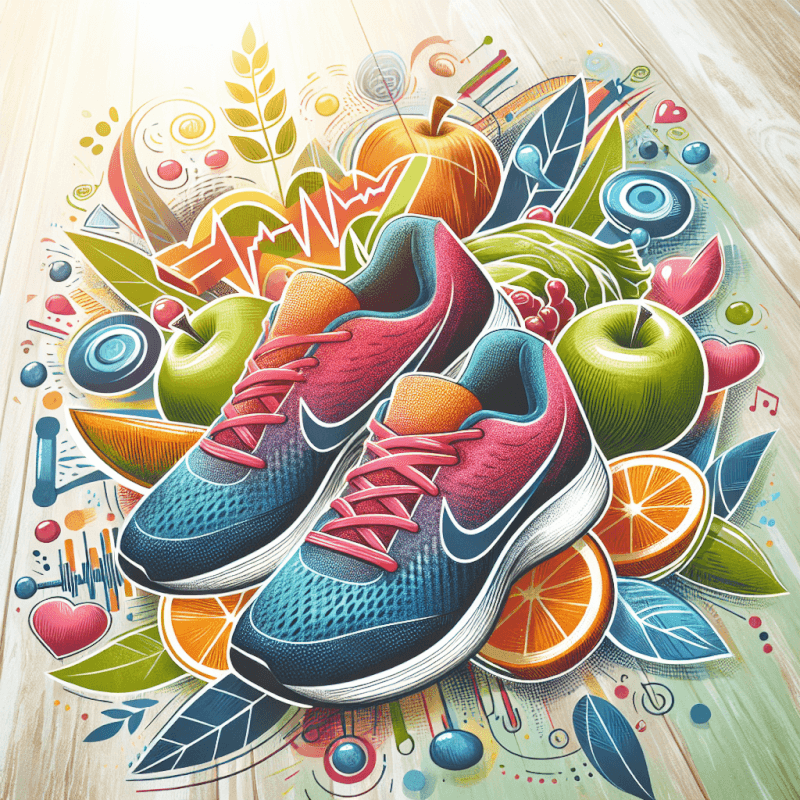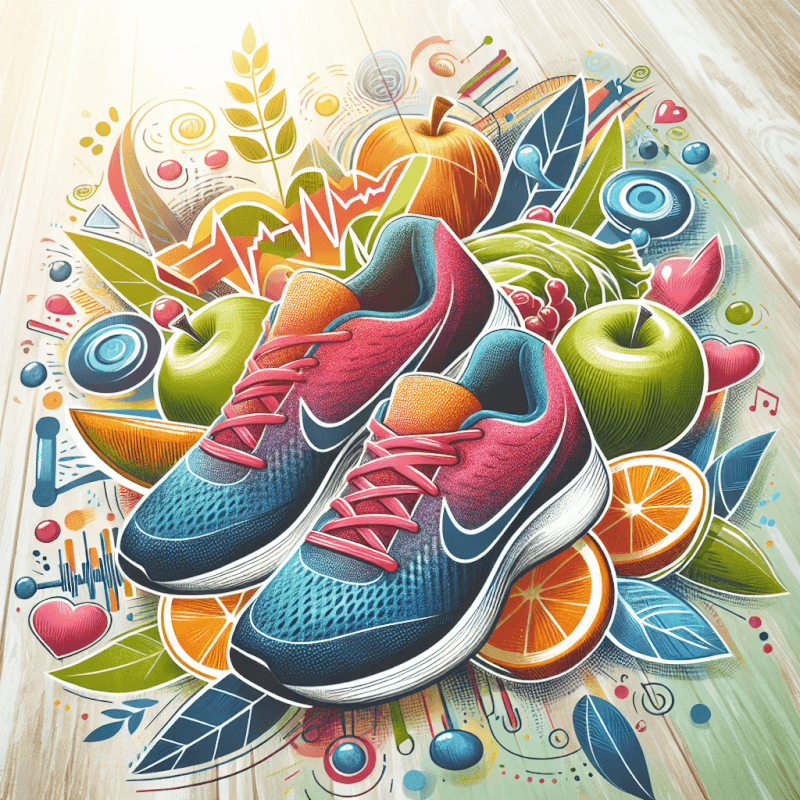Are you a baby boomer looking to stay fit and active? Look no further than Boomers For Fitness! This innovative program is specifically designed for individuals like you who want to maintain a healthy lifestyle in their golden years. With a variety of exercise classes, personalized training sessions, and a supportive community, Boomers For Fitness provides all the tools you need to stay strong, flexible, and energetic. Say goodbye to sedentary living and say hello to a vibrant and active lifestyle with Boomers For Fitness.

Benefits of Exercise for Baby Boomers
Regular exercise provides numerous benefits for baby boomers, helping them maintain a healthy and active lifestyle as they age. Here are some key advantages:
Improves cardiovascular health
Engaging in aerobic exercises, such as brisk walking, swimming, or cycling, helps improve cardiovascular health by strengthening the heart and increasing lung capacity. Regular cardio workouts can lower blood pressure, reduce the risk of heart disease and stroke, and improve overall circulation.
Enhances mental well-being
Exercise has been proven to have a positive impact on mental health. Regular physical activity releases endorphins, which are known to elevate mood and reduce symptoms of depression and anxiety. Moreover, staying active can enhance cognitive function and improve memory, keeping the mind sharp.
Increases muscle strength and flexibility
As individuals age, muscle mass naturally declines, leading to decreased strength and flexibility. However, incorporating strength training exercises, such as lifting weights or using resistance bands, can help older adults counteract this muscle loss. Building muscle strength not only improves overall physical performance but also helps maintain better balance and reduces the risk of falls.
Reduces the risk of chronic diseases
Regular exercise plays a crucial role in reducing the risk of chronic diseases commonly associated with aging, such as type 2 diabetes, osteoporosis, and certain types of cancers. Physical activity helps manage weight, control blood sugar levels, strengthen bones, and boost the immune system, thus preventing or mitigating the impact of these conditions.
Choosing the Right Exercise Routine
Selecting the right exercise routine is essential for baby boomers to maximize the benefits while avoiding injury. Here are key considerations when choosing an exercise routine:
Consulting with a healthcare professional
Before starting any new exercise program, it is crucial to consult with a healthcare professional, especially for individuals with pre-existing health conditions or those who have been sedentary for a long time. A thorough medical evaluation will help determine any exercise limitations or precautions that need to be taken.
Considering personal preferences and abilities
Everyone has different preferences and abilities when it comes to exercise. It’s important to choose activities that are enjoyable and sustainable, as this increases the likelihood of sticking to the routine. Baby boomers should consider their own interests and physical capabilities when selecting exercises, ensuring they don’t strain themselves unnecessarily.
Incorporating a mix of aerobic, strength training, and flexibility exercises
To achieve a well-rounded fitness routine, baby boomers should incorporate a combination of aerobic exercises, strength training, and flexibility exercises. Aerobic activities like walking, cycling, or swimming improve cardiovascular health, while strength training exercises maintain muscle strength. Incorporating flexibility exercises like yoga or Pilates improves joint mobility and overall flexibility.
Best Exercise Options for Baby Boomers
While there’s a wide variety of exercise options available, some activities are particularly beneficial for baby boomers:
Walking and hiking
Walking is a low-impact exercise that can be easily incorporated into daily life. It’s a great option for baby boomers looking to improve cardiovascular health and maintain overall fitness. Hiking can also be a fantastic way to enjoy nature while getting a good workout.
Cycling and spin classes
Cycling, whether outdoors or indoors in a spin class, is another excellent option for baby boomers. It is a low-impact exercise that provides cardiovascular benefits and strengthens the lower body muscles, particularly the legs and glutes.
Swimming and water aerobics
Swimming and water aerobics are ideal for older adults as they put minimal stress on the joints while providing a full-body workout. These activities improve cardiovascular fitness, enhance muscle strength, and offer excellent joint mobility.
Yoga and Pilates
Yoga and Pilates are great for improving strength, flexibility, and balance. These exercises focus on controlled movements and proper breathing techniques, promoting mindfulness and relaxation.
Strength training with weights or resistance bands
Strength training is essential for maintaining muscle mass and strength, which can decline as individuals age. Incorporating weightlifting or resistance band exercises into a routine helps build muscle, improve bone density, and increase overall strength.
Importance of a Balanced Diet
In addition to regular exercise, maintaining a balanced diet is vital for baby boomers to support their overall health and well-being. Here’s why each nutrient is essential:
Adequate protein for muscle repair
Protein is a crucial nutrient for repairing and building muscle tissue. Including lean sources of protein, such as poultry, fish, beans, and tofu, in one’s diet supports muscle recovery after exercise and helps prevent muscle loss due to aging.
Healthy fats for joint health
Getting enough healthy fats, such as those found in avocados, nuts, seeds, and fatty fish, is important for joint health. These fats provide essential omega-3 fatty acids, which have anti-inflammatory properties and can help reduce joint pain and stiffness.
Complex carbohydrates for energy
Complex carbohydrates, like whole grains, vegetables, and fruits, are the body’s primary source of energy. Consuming enough carbohydrates ensures that baby boomers have the fuel they need to power through their workouts and maintain energy levels throughout the day.
Vitamins and minerals for overall well-being
Eating a variety of fruits and vegetables ensures an adequate intake of essential vitamins and minerals. These nutrients play a vital role in supporting immune function, preventing chronic diseases, and maintaining overall health and well-being.

Understanding the Role of Rest and Recovery
While exercise is important, it’s equally important to prioritize rest and recovery. Baby boomers should consider the following:
Importance of sufficient sleep
Adequate sleep is crucial for overall health and well-being. Quality sleep promotes muscle recovery, boosts immune function, and helps regulate hormones. Baby boomers should prioritize getting enough restful sleep each night to support their exercise routine and overall health.
Incorporating rest days into exercise routine
Taking rest days is essential to prevent overexertion and allow the body to recover. Baby boomers should have at least one or two rest days per week to prevent injuries, reduce muscle soreness, and give the body time to repair and replenish.
Practicing stress-reducing activities
Chronic stress can have a negative impact on physical and mental health. Baby boomers should incorporate stress-reducing activities like meditation, deep breathing exercises, or engaging in hobbies they enjoy. This helps promote relaxation, enhances overall well-being, and complements their exercise routine.
Incorporating Fitness into Daily Life
Being physically active doesn’t have to be limited to formal exercise routines. Baby boomers can easily incorporate fitness into their daily lives by making small lifestyle changes:
Taking the stairs instead of the elevator
Opting for the stairs instead of the elevator whenever possible is a simple way to add physical activity to everyday life. Climbing stairs engages several muscle groups and contributes to cardiovascular fitness.
Parking car farther away to encourage walking
Parking the car farther away from the destination encourages additional walking and adding extra steps to daily activity. This mild form of exercise can be easily incorporated into a routine and contributes to increased physical activity levels.
Doing household chores with vigor
Doing household chores can provide an opportunity for physical activity. Baby boomers can engage in activities such as vacuuming, gardening, or cleaning with more energy and purpose, turning routine tasks into mini-workouts.
Engaging in active hobbies and recreational activities
Participating in active hobbies or recreational activities, such as dancing, golfing, or gardening, can be both enjoyable and physically beneficial. These activities increase overall physical activity levels and provide a social aspect to keep baby boomers engaged and motivated.

Joining Fitness Programs and Classes
Joining fitness programs or classes can provide additional benefits for baby boomers:
Benefits of group exercise
Exercising in a group setting can provide motivation, support, and accountability. Sharing experiences and common goals with others creates a sense of camaraderie and encourages long-term commitment to fitness.
Socializing and making new friends
Fitness programs and classes offer opportunities to socialize and build new relationships. Engaging in exercise together creates a supportive and social environment, reducing feelings of isolation and increasing overall well-being.
Access to expert guidance and motivation
Joining a fitness program or class provides access to expert guidance from qualified instructors who can tailor exercises to individual needs and abilities. These professionals can offer proper form and technique instruction, reducing the risk of injury and ensuring exercises are performed correctly.
Accountability and encouragement
Being part of a fitness program or class provides a level of accountability and regularity, making it easier to stick to a routine. Regular attendance and the encouragement from instructors and fellow participants contribute to long-term commitment and success.
Addressing Common Challenges and Injuries
Baby boomers may face specific challenges and injuries as they age, but there are ways to overcome and manage them:
Dealing with joint pain and arthritis
Joint pain and arthritis are common challenges for older adults. Low-impact exercises, such as swimming, gentle yoga, or Tai Chi, can be beneficial for joint health and pain management. Consulting with healthcare professionals, including physical therapists, can provide personalized recommendations for managing joint pain.
Overcoming age-related limitations
As individuals age, certain physical limitations may arise. However, modifications and adaptations can be made to exercises to accommodate these limitations. Working with a qualified fitness professional ensures safety and allows for tailored exercises that meet individual ability levels.
Modifying exercises for safety
Baby boomers should prioritize safety during exercise to prevent injury. This may involve modifying exercises to suit individual needs, using appropriate equipment, and performing exercises with proper form and technique. Consulting with a fitness professional or physical therapist can help identify the necessary modifications.
Listening to the body and avoiding overexertion
It’s important for baby boomers to listen to their bodies and avoid pushing themselves beyond their limits. Overexertion can lead to injuries and setbacks. Understanding and respecting individual physical limits is essential for long-term fitness success and injury prevention.

Creating a Supportive Environment
Having a supportive environment can greatly contribute to the success of a fitness routine for baby boomers. Here’s how to create an environment that promotes health and well-being:
Involving friends or family members
Including friends or family members in exercise routines can provide additional motivation and support. Exercising together can transform workouts into social activities, making them more enjoyable and increasing the likelihood of sticking to a routine.
Finding exercise buddies or groups
Finding exercise buddies or joining fitness groups can provide additional motivation and accountability. Being part of a community with shared interests and goals can enhance the overall exercise experience and help maintain long-term commitment.
Setting realistic goals and celebrating milestones
Setting realistic and achievable fitness goals is crucial. Baby boomers should focus on gradual progress and celebrate milestones along the way. Recognizing achievements, whether big or small, helps stay motivated and boosts self-confidence.
Rewarding oneself for consistent effort
Rewarding oneself for consistent effort can provide positive reinforcement and help maintain motivation. Whether it’s treating oneself to a massage, enjoying a favorite meal, or buying new workout gear, acknowledging the hard work and dedication can be a powerful motivator.
Maintaining Motivation and Long-Term Commitment
Staying motivated and committed to a fitness routine can be challenging, but these strategies can help baby boomers stay on track:
Setting specific and achievable goals
Setting specific, measurable, attainable, relevant, and time-bound (SMART) goals can help maintain motivation and provide a sense of direction. Breaking down larger goals into smaller milestones makes them more manageable and allows for a sense of accomplishment along the way.
Tracking progress and celebrating small wins
Monitoring progress by keeping a journal, using fitness apps, or utilizing wearable technology can help baby boomers track their accomplishments. Celebrating small wins, such as increased strength, improved endurance, or achieving personal bests, reinforces progress and boosts motivation.
Mixing up the exercise routine
Adding variety to the exercise routine prevents boredom and plateaus. Trying different activities, exploring new classes, or challenging oneself with new exercises keeps workouts fresh and exciting. Baby boomers can also consider adding workouts in different environments, such as outdoor exercises in nature, to keep things interesting.
Rewarding oneself for reaching milestones
In addition to rewarding consistent effort, celebrating reaching significant milestones can provide further motivation. Baby boomers can plan special rewards for achieving long-term goals, such as a weekend getaway, a spa day, or investing in new fitness equipment.
In conclusion, regular exercise offers numerous benefits for baby boomers, from improved cardiovascular health and mental well-being to increased muscle strength and flexibility. By choosing the right exercise routine, incorporating a balanced diet, understanding the role of rest and recovery, and adopting strategies to maintain motivation, baby boomers can enjoy a healthy and active lifestyle as they age. With the right approach and support, exercise can contribute to overall well-being and increase their quality of life.



